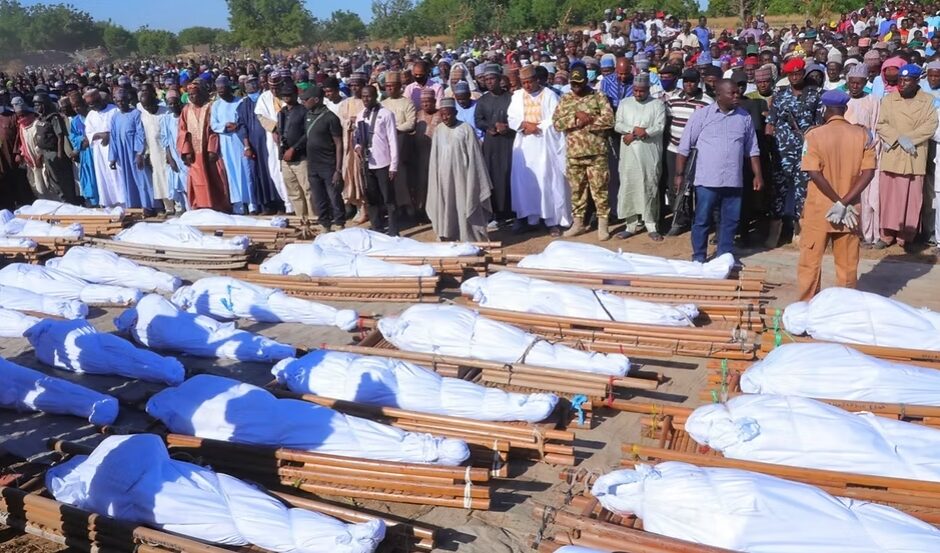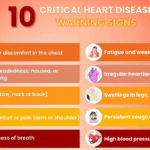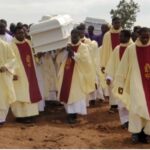How systemic exclusion becomes the silent weapon of destruction – Martins Oloja
In the intricate tapestry of Nigeria’s ongoing security and humanitarian crisis, a disturbing pattern emerges, one that transcends the conventional narratives of religious conflict and reveals a more insidious reality. What we are witnessing is not merely random violence but what appears to be a coordinated system of persecution that strategically combines physical brutality with institutionalized marginalization. This system manifests through two parallel yet interconnected atrocities: the relentless salient terrorist campaigns against Christian communities, and the systematic denial of educational opportunities through indigene-ship restrictions that effectively create a form of educational apartheid.
The Anatomy of Exclusion: Institutionalizing Educational Apartheid
The term “educational apartheid” may sound inflammatory to some, but when you examine the mechanisms at work in certain northern states in Nigeria, the description becomes uncomfortably accurate. Beyond the headlines of violence lies a quieter, more bureaucratic form of exclusion that systematically prevents Christian communities from accessing their fundamental rights to education and civic participation.
According to Martins Oloja a celebrated journalist in Nigeria, “I have encountered numerous cases that reveal this institutional discrimination. Consider the experience of a young Christian woman from Guza local government in Borno State who scored 277 in her university entrance examination, an outstanding result that should have guaranteed her admission to study law. Yet when she approached the Borno State Liaison Office in Abuja to obtain her certificate of indigene-ship, she was told to return to Guza, despite watching Muslim applicants with lesser score receive the same certificate from the same office without such requirements”.
This is not an isolated incident. The deliberate obstruction extends to the highest levels of state governance. In Bauchi State, we witnessed the unilateral relocation of a local government headquarters from Tafawa, a Christian-dominated area, to Bunu, a Muslim-dominated area, a move so blatantly unconstitutional that it took a Court of Appeal ruling to overturn it. During this process, the only Christian member of the state assembly, a woman, was suspended for three years merely for criticizing this illegal relocation.
The consequences of these policies are devastating:
– Systematic exclusion from professional courses like medicine, law, and engineering
– Arbitrary changes to academic records, replacing technical subjects with Christian Religious Knowledge
– Effective disenfranchisement from educational advancement and subsequent economic opportunities
These bureaucratic mechanisms create what analysts might identify as a form of institutionalized discrimination that mirrors the “limited statehood” phenomena seen in conflict regions worldwide, where governments fail to provide equitable services and protection to all citizens.
The Security Crisis: From Boko Haram to Complex Terrorist Networks
The educational exclusion occurs against a backdrop of severe security challenges that have evolved significantly over the past decade. The terrorist landscape in Nigeria has transformed from a single unified threat to a complex ecosystem of competing and complementary extremist groups.
The original Boko Haram faction, known as Jama’atu Ahlis Sunna Lidda’awati wal-Jihad (JAS), has historically employed indiscriminate violence against both Muslim and Christian civilians. Meanwhile, its offshoot, the Islamic State West Africa Province (ISWAP), has developed a more sophisticated approach, combining strategic attacks on military and government targets with attempts to establish a form of governance in territories they control.
Table: Evolution of Major Terrorist Groups in Nigeria
| Group | Founding Period | Key Characteristics | Primary Tactics |
| Boko Haram (JAS) | Early 2000s | Indiscriminate violence against all civilians | Church bombings, school attacks, market explosions |
| ISWAP | 2015 – 2016 | More selective targeting, pseudo-state ambitions | Military attacks, taxation systems, limited-service provision |
| Ansaru | 2011 – 2012 | Al-Qaeda aligned, opposes killing Muslims | Kidnapping of Westerners, targeted attacks on Christians |
The human cost of this violence is staggering. According to available data, Nigeria has experienced over 2.4 million displacements with casualties exceeding those of past major African conflicts. The Global Terrorism Index reports that ISWAP alone was responsible for 482 deaths in 2020 and 288 in 2023, with a resurgence in 2025 leading to hundreds more fatalities.
Perhaps most heartbreaking is the impact on children. Nigeria had the second-highest number of children recruited for roles in the conflict in 2018. 1,947 children, including 1,596 boys and 351 girls. By 2017, Boko Haram had recruited approximately 8,000 children, violating virtually every protection outlined in the United Nations Convention on the Rights of the Child.
According to recent reports, a significant number of churches have been destroyed, and many Christian individuals have been killed in Nigeria through sponsored attacks attributed to groups such as Boko Haram, the Islamic State West Africa Province (ISWAP), and Fulani militias.
Scale of Destruction Against Churches
Reports from various organizations like Catholic News Agency (CAN), Genocide Watch, International Christian Concern, Christianity Today, indicate a systematic destruction of Christian places of worship over many years.
- The International Society for Civil Liberties and Rule of Law (Intersociety) estimates that from 2009 to September 2025, approximately 19,100 Christian churches in Nigeria have been destroyed, looted, or forcibly closed. This equates to an average of about 1,200 churches per year, or more than three every day. Another report states that 18,000 churches were destroyed by April 2023.
- These attacks have targeted both Catholic churches and churches of other denominations. A specific example includes the June 2022 massacre at St. Francis Xavier Church in Owo in Ondo State of Nigeria, where more than 50 parishioners were killed.
Reported Fatalities and Specific Attacks
Christian communities, particularly in Nigeria’s Middle Belt, have experienced repeated violent attacks resulting in mass casualties. The table below summarizes some of the recent incidents:
| Date/Period | Location | Reported Perpetrator | Reported Impact on Christians |
| April 13, 2025 | Zikke, Plateau State | Fulani extremists | 54 killed following Palm Sunday services |
| June 1-7, 2025 | Gwer West & Apa, Benue State | Fulani militias | 85 killed in a week |
| February 2, 2025 | Ebonyi State | Fulani extremists | 16 killed from The Lord Chosen Charismatic Revival Ministry |
| Late 2023 – early 2024 | Plateau State | Fulani herders | Over 1,300 people killed |
| Since 2009 | Nationwide | Jihadists | 125,000 Christians killed (per Intersociety report) |
| Since 2000 | Nationwide | Islamist jihadist groups | 62,000 Christians killed (per Genocide Watch) |
Attacks also target religious leaders. A report from the Catholic Bishops’ Conference of Nigeria states that since 2015, at least 145 priests have been kidnapped, 11 murdered, and 4 remain missing. Father Matthew Eya was killed in a targeted attack in Enugu state in September 2025
The International Response: Sovereignty Versus Salvation
The complexity of Nigeria’s crisis has inevitably drawn international attention, most recently through the controversial statements from the present U.S. President Donald Trump suggesting possible military intervention to protect Christians. This proposition has sparked intense debate within Nigeria, revealing deep divisions in how we perceive both the problem and the appropriate solutions.
Those opposing foreign intervention argue compellingly that it would violate Nigeria’s sovereignty and potentially exacerbate existing tensions. As expressed by a coalition of Nigerian civic groups, “Nigeria is a sovereign country with functioning democratic institutions. We reject any notion that military incursion by a foreign power could be justified under any pretext “.
However, this perspective must contend with the urgent reality that after more than a decade of escalating violence, our domestic solutions have proven insufficient. The question we must ask ourselves is: at what point does the imperative to protect human lives transcend concerns about sovereignty?
The internationalization of our conflict is already underway. Researchers have noted an “influx of foreign jihadists, primarily from Arab countries, into the ranks of ISWAP,” representing a deliberate attempt to transform Nigeria’s conflict into a pillar of the Islamic State’s global strategy in Africa. When external actors are already involved in perpetuating violence, can we reasonably reject external assistance in ending it?
A Path Forward: Beyond Rhetoric to Structural Solutions
Addressing this multifaceted crisis requires moving beyond simplistic narratives and implementing a comprehensive strategy that acknowledges the interconnected nature of educational exclusion, security failures, and political complicity and I will add that Nigeria is a circular state that has a constitution, therefore, Sharia must be abolished.
1. Demonstrating Unwavering Political Will
The most critical missing element in our response has been consistent political determination to confront not only the terrorist groups but also the systemic discrimination within our institutions. We have sufficient evidence of the security challenges, what we lack is the unwavering commitment to address them.
According to Mr. Aloja, “We do not believe that we lack the capacity in the military to crush the terrorists. We haven’t been able to solve this problem because there is corruption within the security architecture.” This corruption manifests when “a particular security chief insisted that these people must be crushed and there’s another superior person who is trying to protect a territory and a race “.
2. Reforming Security Architecture and Collaboration
Our counterterrorism approach requires fundamental reassessment. The current strategy has been described by security analysts as suffering from “poor coordination inter-agency rivalries, inadequate intelligence sharing, a lack of equipment, and epileptic CTCOIN strategies “.
We need a security framework that:
– Prioritizes civilian protection over territorial control
– Integrates traditional intelligence with modern technological capabilities
– Strengthens regional cooperation through the Multinational Joint Task Force
– Addresses the root causes of radicalization through community engagement
– Any security head or officers who refused to respond to distress call to killing, genocide or pogrom will be seen as accomplice
3. Dismantling Educational Apartheid
Concurrent with security reforms, we must systematically dismantle the bureaucratic mechanisms of educational exclusion. This requires:
– Legislative action: to guarantee and enforce equal access to educational documentation
– Federal oversight: of state-level implementation of educational policies
– Transparency measures: in university admissions and scholarship allocations
– Judicial reinforcement: of constitutional education rights
4. Balanced International Cooperation
While expecting foreign military intervention, we should pursue strategic collaboration that respects Nigerian sovereignty while leveraging international expertise and resources. This could include:
– Enhanced intelligence sharing on terrorist movements and financing
– Technical assistance in developing advanced counterterrorism capabilities
– Support for community-based deradicalization and rehabilitation programs
– International monitoring and reporting on human rights violations
– Zero tolerance to terrorist invasion of Nigeria and their sponsors and zero tolerance to Christian or Muslim genocide or killing and their sponsors
Conclusion: Reclaiming Nigeria’s Promise
The crisis we face is not merely one of security or education alone, but of Nigeria’s fundamental character as a nation. The coordinated persecution through both violence and bureaucratic exclusion represents an existential threat to our national unity and democratic future.
What makes this situation particularly tragic is that it contradicts the rich diversity that has historically strengthened our nation. As rightly noted in one analysis, “Every region of Nigeria has both Christians and Muslims living side by side, and conflicts typically unfold along community or regional lines rather than strictly religious ones. But as related to the terrorist groups, the victims are Christians. “. The manipulation of these tensions for political purposes represents a betrayal of our shared identity.
The solution must begin with truthful acknowledgment of the reality on the ground; Christians are being killed. We cannot solve problems we refuse to name. From this acknowledgment must emerge a collective determination to protect every Nigerian’s right to safety, education, and dignity, regardless of religion or ethnicity.
Our message to the international community should be one of partnership rather than paternalism. As the joint statement from Nigerian civic groups expressed, “The path forward is collaboration, attacking the killers and their sponsors not confrontation on the innocent citizens. We invite the United States to assist Nigeria in building capacity, stabilising genocide -affected regions, and addressing the humanitarian crisis which has to do with the retrieving of land taking from Christians who are now in IDP camps and return them back to their displaced lands and houses. True friends help strengthen democracy, not undermine it “.
Ultimately, the restoration of Nigeria’s promise requires courage, the courage to confront uncomfortable truths, to reform broken systems, and to reaffirm that in our diversity lies not weakness, but our greatest strength. The time for that courage is now.



